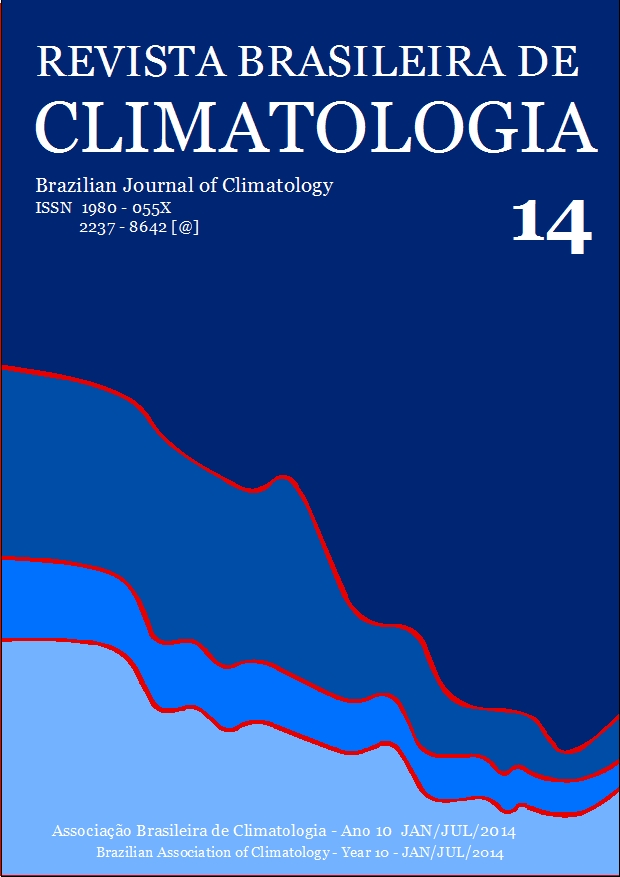THE IMPORTANCE OF THE QUALITY AND RELIABILITY OF THE HISTORICAL TIME SERIES FOR THE STUDY OF CLIMATE CHANGE
DOI:
https://doi.org/10.5380/abclima.v14i1.38168Keywords:
Climate change, datasets, homogeneity, European COSTAbstract
The value of the datasets employed in climate changes analysis strongly depends on the homogeneity of the time series. In fact, once climate change became an issue of central importance, there arose a much needed skepticism about the results of data analysis work, which frequently indicated sharp or determined changes in regional climates. It is now well recognized that variations in many long term station time series are caused not only by changes in weather and climate, but also by changes in location of the stations, instruments, formulae used to calculate means, observing practices and station environment (Karl and Williams, 1987; Heino, 1994; Gokurk et al., 2008). A homogeneous climate time series is defined as one where variations are caused only by variations in weather and climate (Conrad and Pollak, 1950; Aguilar et al., 2003). Other, unnatural variations are called inhomogenities, which can lead to erroneous interpretations of the studied climate. Thus, before using climatological data in any kind of study – especially in climate change studies – a quality control and homogeneity assessment of data set is mandatory (Peterson et al., 1998). Long instrumental homogeneous records are a basic requirement for evaluating the smooth running of the variables over time and compare the measurement stations and the geographical areas to which they belong. Just to pursue this important objective, a few years ago, between 2007–2012, the European COST Action ES0601 called HOME (Advances in homogenisation methods of climate series) project was devoted to evaluate the performance of homogenization methods used in climatology and produce a software that would be a synthesis of the best aspects of some of the most efficient methods.Downloads
Downloads
Published
How to Cite
Issue
Section
License
A aprovação dos artigos implica a aceitação imediata e sem ônus de que a Revista Brasileira de Climatologia terá exclusividade na primeira publicação do artigo. Os autores continuarão, não obstante, a deter os direitos autorais. Os autores autorizam também que seus artigos sejam disponibilizados em todos os indexadores aos quais a revista está vinculada.
Os autores mantém seus direitos de publicação sem restrições
A Comissão Editorial não se responsabiliza pelos conceitos ou afirmações expressos nos trabalhos publicados, que são de inteira responsabilidade dos autores.
A Revista Brasileira de Climatologia oferece acesso livre imediato ao seu conteúdo, seguindo o entendimento de que disponibilizar gratuitamente o conhecimento científico ao público proporciona maior democratização do conhecimento e tende a produzir maior impacto dos artigos publicados. Os artigos publicados na revista são disponibilizados segundo a Licença Creative Commons CC-BY-NC 4.0 (https://creativecommons.org/licenses/by-nc/4.0/). Segundo essa licença é permitido acessar, distribuir e reutilizar os artigos para fins não comerciais desde que citados os autores e a fonte. Ao submeter artigos à Revista Brasileira de Climatologia, os autores concordam em tornar seus textos legalmente disponíveis segundo essa licença




